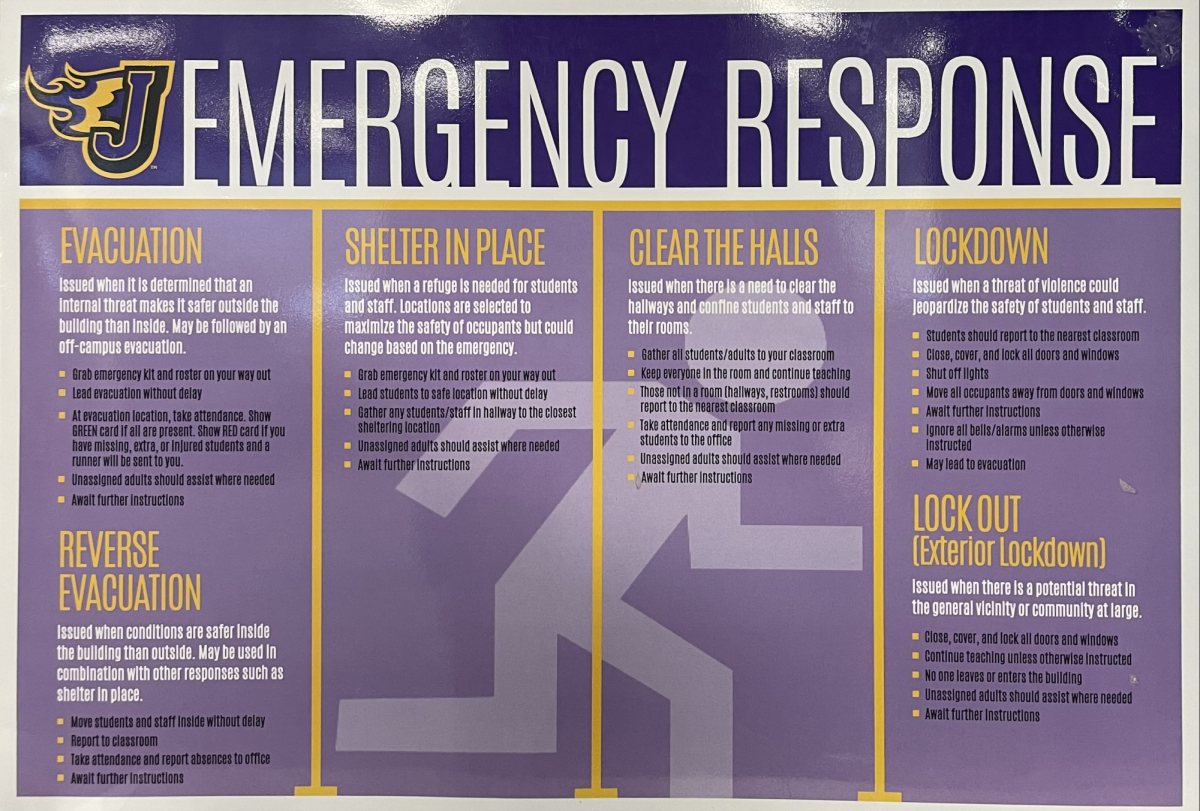Balancing a challenging schedule and a manageable one is important with students–especially when the end of the school year approaches. 15 unique Advanced Placement, or “AP,” classes offer a variety of learning within both humanities and STEM fields. Taking these classes can be enriching for students seeking more of a challenge, and the AP Tests at the end of the school year can be a difficult task to the students enrolled.
Despite being daunting, many teachers promote these AP Tests, especially in classes where dual credit is not received through DMACC. In a survey among 14 of the 15 AP teachers here at JHS, it was found that 51.7% of them shared the belief that all students should take the AP exam. Teachers offered reasons for not recommending students to these tests, such as being unnecessary due to dual credit, or unless their future major was within that particular field.
Currently enrolled in both AP Psychology and AP Literature and Composition, Elisa Chau ’18 is currently preparing for AP exams, and she believes in the power of repetition. “Usually, I retake the multiple choice tests and practice quizzes that we have had throughout the year for each unit,” said Chau. “I’ll review any terms or slideshows too, honestly retesting is the best way I learn, lots of repetition for sure.”
Although this may be one strategy, variations occur for suggestions from class to class. AP Language and Composition teacher, Mark Schillerstrom believes that study materials can be helpful, since they are based on past tests. However, Schillerstrom cautions that the College Board frequently makes dramatic changes to the current test, so using them to prepare does not guarantee a reflection of the current test.
Will Gavin ’18, is one AP student in particular who does not follow these recommendations from teachers. Gavin is currently in AP Chemistry and AP Psychology, “It’s not that I have any ideological opinions against it (studying), but rather that I just really zone in during class, enough so that I usually feel fairly confident for tests. I usually just can’t focus at home either, so I don’t even try it.”
The approach of repetition to succeed can be valuable when it comes AP exams. “I can only speak for AP Chemistry, but I would love it if when it comes to the review time, it’s not so much new material, but it’s looking at what we’ve accomplished and learned, and knock out any misconceptions we have in order to remind us of what we learned,” Oldham said. Historically, about 70 percent of his students take the AP exam, but he claims there are exceptions, namely seniors who are already accepted into college and do not want to study or stress about the exam.
Oldham is one of the teachers who recommends that his students purchase an additional study book. “The reason I recommend the Princeton review is not that it’s required, but it’s because the idea is that we go over everything in that book. The Princeton review does a good job of distilling out the most important information, while giving AP examples, and walking us through (the thinking) step by step,” Oldham said. “This can be the edge that some students need, especially those who don’t particularly respond to my teaching methods well.”








